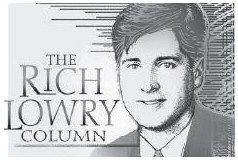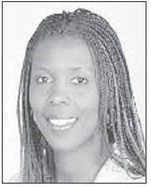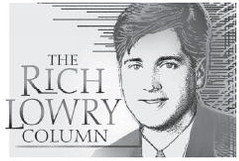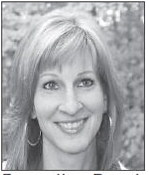The Secret Service is a national embarrassment


If this is what the Secret Service has become, it’s a wonder that something worse than Butler, Pennsylvania, hasn’t already happened. That event was terrible enough, with one rally-goer killed and Donald Trump coming within an inch of losing his life. If Trump hadn’t turned his head at the right moment, Butler would have become one of the most notorious locations in American history and we’d be living in a different world.
At the time, the Secret Service’s failure seemed unfathomable, and none of the revelations since — set out in a report by the Senate Homeland Security Committee — make it any better. Barney Fife was better organized and more accountable.
The Secret Service is given responsibility for avoiding a calamity that would traumatize the nation and derange its politics for years, perhaps decades, to come. Its competence is a matter of the utmost national consequence. Yet, the agency was bumbling and slow-reacting, a disaster waiting to happen. Surely, this sort of ineptitude wouldn’t be tolerated by Taylor Swift’s security detail.
The Secret Service, which we expect to be run with a vigor and precision befitting its mission, instead operates as though it’s a typical bureaucratic outfit housed within, say, the Health Resources and Services Administration. The Senate report relates “multiple foreseeable and preventable planning and operational failures,” as an armed man was permitted to climb atop the roof of the American Glass Research building within 200 yards of where Trump was speaking and get off eight shots.
The story of how it happened is muddled by fingerpointing and confusion over who was in charge. Secret Service advance agents didn’t know who was responsible for final decisions and didn’t know who determined the security perimeter for the event. State and local law enforcement were responsible for the AGR building because it was outside the perimeter. But advance agents didn’t share planning documents with them, and didn’t ask for the operational plans of state and local law enforcement. Someone from Butler Emergency Services warned during a walkthrough that local law enforcement didn’t have the manpower to lock down the building.
Advance agents did suggest putting large trucks or other heavy equipment between the stage and buildings to block lines of sight, but nothing came of the idea. The local officers and Secret Service agents operated on separate radio channels, and the only communications connection between the Secret Service and police communication centers was via cell phone. Some agents’ radios had technical problems or didn’t work, while the counter unmanned aerial system was inoperative at the time the shooter Thomas Matthew Crooks flew a drone over the rally site in the afternoon.
Crooks fired his shots at 6:11 p.m. At 5:44 p.m., the Secret Service security room got word that local police had spotted a suspicious person with a rangefinder near the AGR building. This should have been a five-alarm event, yet key Secret Service personnel weren’t told that local police had observed Crooks and lost track of him.
Three minutes before Crooks fired, a local law enforcement officer sent a radio alert that someone was on the AGR roof, with the Secret Service security room getting word a minute after that.
When a Secret Service continued from page
counter-sniper saw local police running with their guns drawn toward the AGR building, it didn’t occur to him to tell Trump’s detail to get him off the stage. He said the police running meant only an “elevated” threat level.
The explanation of one top Secret Service officer — “I can’t put out fires that I don’t know exist” — should never be acceptable. It could have been worse, but that’s not the standard.
Given the contents of the Senate report, it’s not shocking that the Secret Service allowed another would-be assassin to get close to Trump just two months later. An agency that should fade into the background because the quality of its work can always be taken for granted is instead a national embarrassment.
Rich Lowry is editor of the National Review.
Synd., Inc.
Mrs. Merrie Rewis
Mrs. Merrie Catherine Smith Rewis, 63, died on September 30, 2024, at Prisma Health Richland Hospital in Columbia, SC.
Mrs. Rewis was a na- tive of Vidalia and had just moved back there last month. She was a homemaker and was a member of Crossroads Church in Guyton. She was preceded in death by her husband, Ronald Giles Rewis.
Survivors include her mother, Delorna Warnock; children, Jenny Kerns (Kris), Crissy Rose (Buddy), Brandy Ellis (Brad), and Ronnie Stone; sister, Paula Davis (Darrell); a special cousin, Lorenda Morris; 11 grandchildren; and 3 great-grandchildren.
Memorial services will be held on Saturday, October 19, 2024, at 11:00 a.m., at Crossroads Church, 1200 Honey Ridge Road, Guyton, GA 31312.
Thomas C. Strickland & Sons Funeral Home, Effingham Chapel is in charge of arrangements.






out of
Posted on